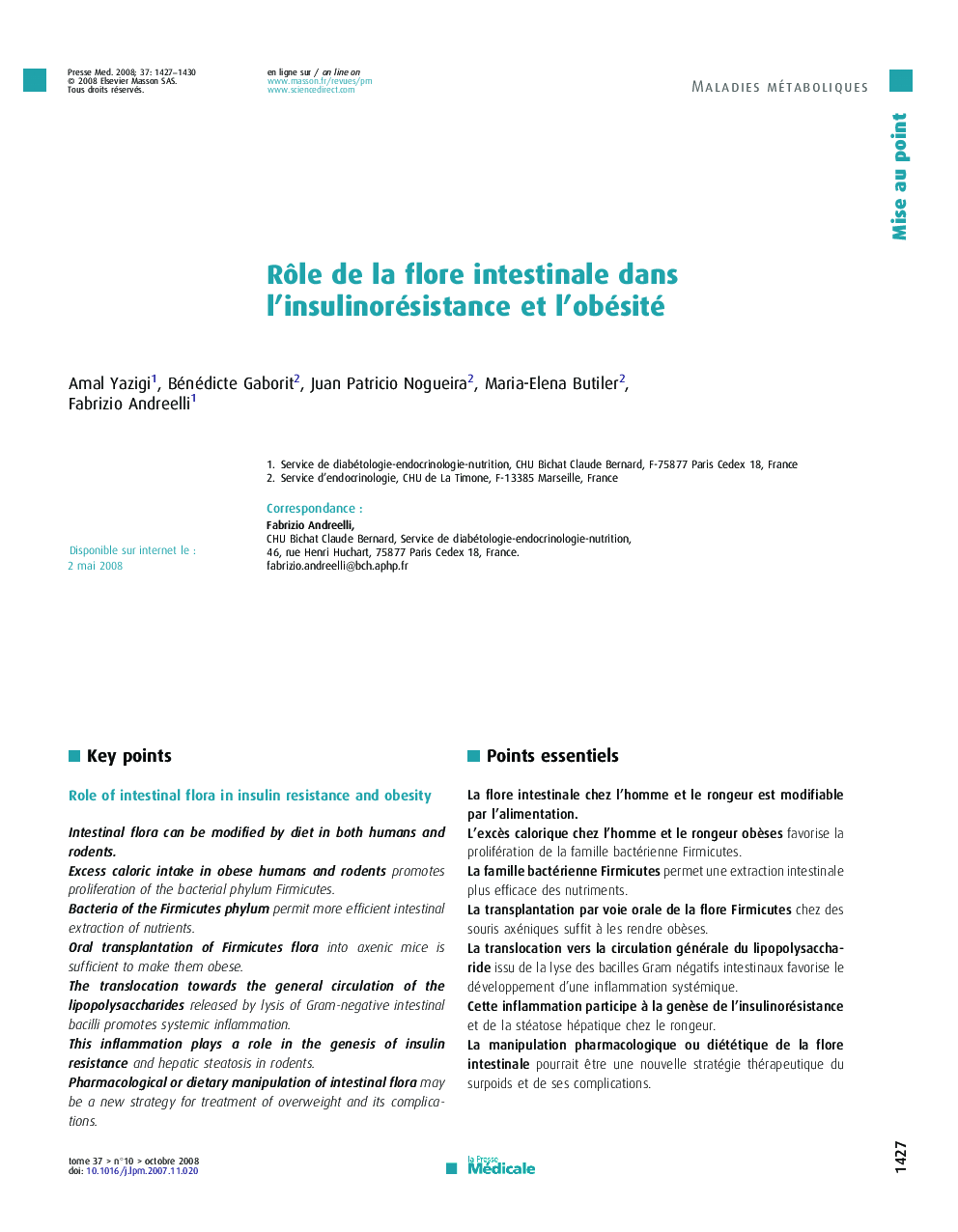| Article ID | Journal | Published Year | Pages | File Type |
|---|---|---|---|---|
| 3821083 | La Presse Médicale | 2008 | 4 Pages |
Points essentielsLa flore intestinale chez l’homme et le rongeur est modifiable par l’alimentation.L’excès calorique chez l’homme et le rongeur obèses favorise la prolifération de la famille bactérienne Firmicutes.La famille bactérienne Firmicutes permet une extraction intestinale plus efficace des nutriments.La transplantation par voie orale de la flore Firmicutes chez des souris axéniques suffit à les rendre obèses.La translocation vers la circulation générale du lipopolysaccharide issu de la lyse des bacilles Gram négatifs intestinaux favorise le développement d’une inflammation systémique.Cette inflammation participe à la genèse de l’insulinorésistance et de la stéatose hépatique chez le rongeur.La manipulation pharmacologique ou diététique de la flore intestinale pourrait être une nouvelle stratégie thérapeutique du surpoids et de ses complications.
Key pointsIntestinal flora can be modified by diet in both humans and rodents.Excess caloric intake in obese humans and rodents promotes proliferation of the bacterial phylum Firmicutes.Bacteria of the Firmicutes phylum permit more efficient intestinal extraction of nutrients.Oral transplantation of Firmicutes flora into axenic mice is sufficient to make them obese.The translocation towards the general circulation of the lipopolysaccharides released by lysis of Gram-negative intestinal bacilli promotes systemic inflammation.This inflammation plays a role in the genesis of insulin resistance and hepatic steatosis in rodents.Pharmacological or dietary manipulation of intestinal flora may be a new strategy for treatment of overweight and its complications.
